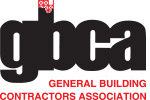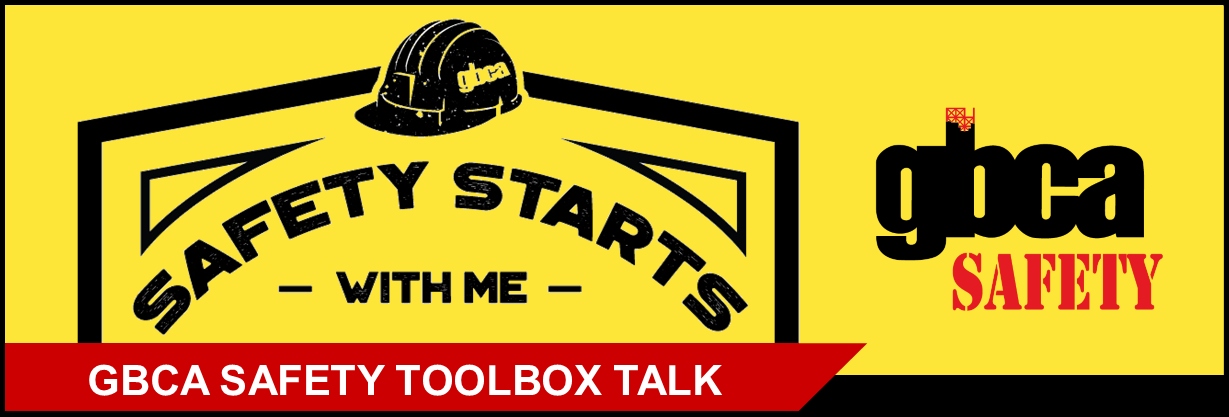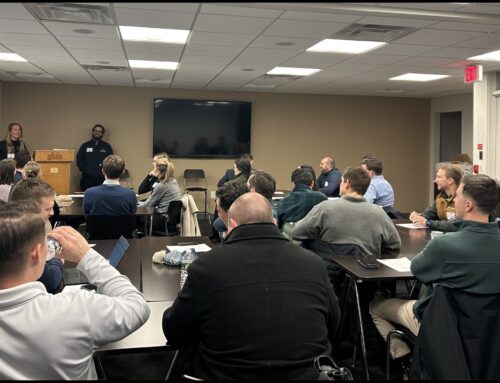We all enjoy celebrating. This GBCA Safety Toolbox Talk discusses how to avoid and address hangovers and dehydration. Sometimes it’s best to NOT go into work if you’re hungover or dehydrated. This toolbox talk provides tips to avoid being in a physical state where you will be a hazard on the job site. Click below to download the Toolbox Talk as a handout (includes Sign-In Sheet).
Hangovers and Dehydration
The purpose of this toolbox talk is to provide some basic information about “hangovers” and how they are a potential job safety issue. This will primarily address “the morning after” effect. The hangover is caused in part by dehydration, and drinking alcohol can lead to dehydration.
- Alcohol has a diuretic effect. Alcohol increases the body’s production of urine, leading to a loss of fluids and electrolytes that are needed for normal body functioning.
- Excessive drinking can cause vomiting, leading to further loss of fluids and electrolytes.
- Although dehydration is not the only cause of a hangover, it contributes to commonly known hangover symptoms, such as increased thirst, fatigue, headache and dizziness.
Tips to Avoid & Address a Hangover
- When drinking alcohol, alternate between a glass of water and a drink. Though this won’t necessarily prevent dehydration, it can help moderate alcohol intake.
- Increasing your water intake in general may help reduce some symptoms of hangovers, and even prevent them altogether.
- If possible, get some sleep. The rest will help your body recover.
- If you have a hangover, stay hydrated with water or electrolyte-rich drinks, such as juice or sport drinks. Be careful with sport drinks: they usually also contain a lot of sugar.
- Avoid taking acetaminophen (e.g. Tylenol). If you need to take a painkiller, take ibuprofen (e.g. Advil), and use only as directed.
Being dehydrated because of a hangover, like any other sickness, can impact your ability to focus on the job. Even if your blood alcohol level is low enough and you can legally work, you should still consider your physical state as impaired and potentially dangerous.
Four questions to ask yourself before going to work if you are hungover:
- Do you need good motor skills?
- Do you need clear and concise thinking?
- Do you work at heights?
- Do you work with electricity or machinery?
Consider the skills that you’ll need to function effectively and efficiently on the job. It may be best to stay home to ensure your safety, as well as the safety of those working around you.
Remember to record the attendees of your toolbox talk!





